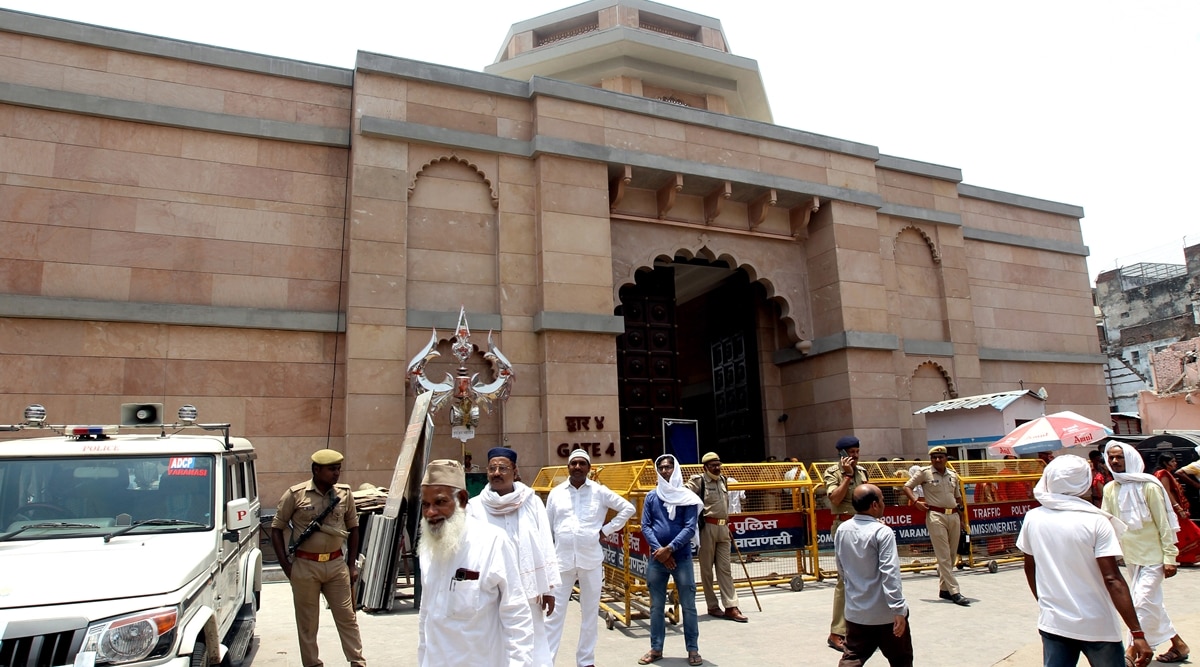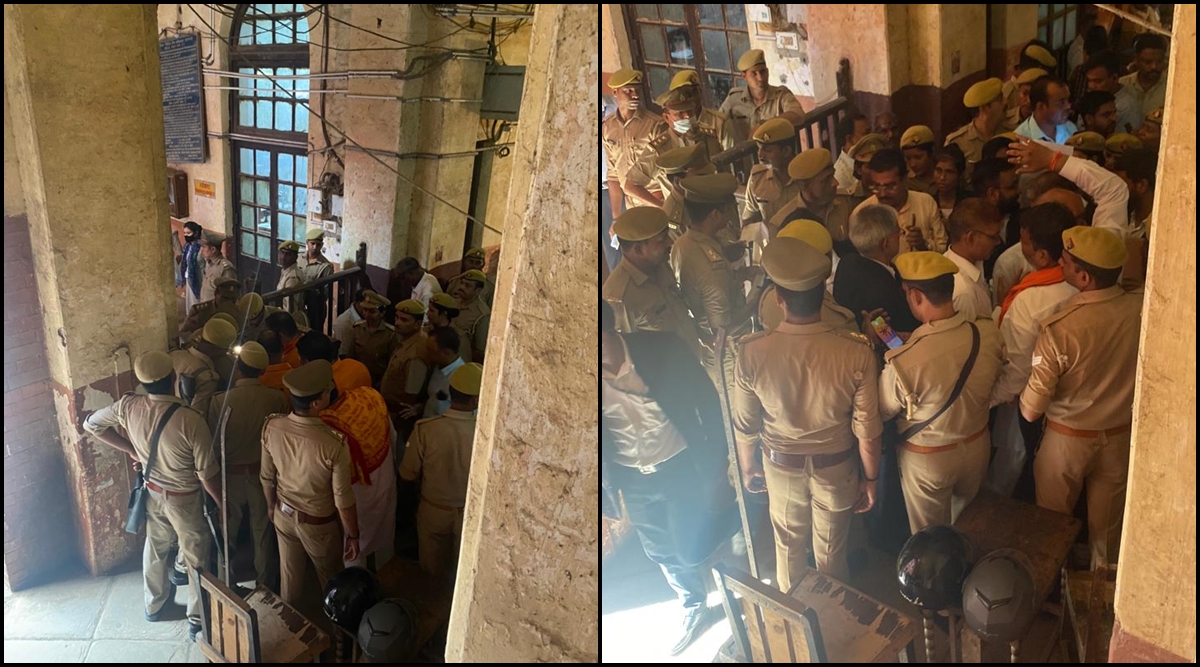Underlining that Hindu groups are not barred by the 1991 Places of Worship Act, the Varanasi District Court Monday said that the suits seeking the right to worship inside the Gyanvapi mosque are maintainable.
“Therefore, according to the plaintiffs, even after 15th August, 1947 they were worshipping Maa Sringar Gauri, Lord Ganesh and Lord Hanuman daily up to the year 1993. If this contention is proved then the suit is not barred by Section 4 of the Places of Worship (Special Provisions) Act, 1991,” the order stated.

The court was hearing civil suits filed by four Hindu women seeking the right to worship the deity, Maa Shringar Gauri, within the Gyanvapi mosque complex. In a 26-page order, District Judge AK Vishvesha dismissed the challenge to the civil suits by Anjuman Intezamia Masjid Committee.
Advocate Mirajuddin Siddique, appearing for the mosque told The Indian Express that the order will be challenged before the Allahabad High Court.
The Places of Worship Act bars conversion of the religious character of any place of worship as it existed on the 15th day of August, 1947. The mosque had argued that the 1991 law bars the civil suit seeking a right to worship in the mosque premises. The Hindu side argued that until 1993, regular worship of Maa Shringar Gauri was allowed in the “back side of Gyanvapi in Ishan Kon.” Since 1993, they said, the district administration of Varanasi restricted the entry to only once a year.
“In Para 43 of the plaint, it has been mentioned that devotees of Lord Shiva were performing daily pooja and worship of Maa Sringar Gauri and other deities within old temple continuously till 1990 when during Ayodhya movement the Government of Uttar Pradesh to appease Muslims put restriction in daily pooja and since 1993 the State Administration working under the oral orders of the State Government are allowing the devotees to perform pooja only on 4th (Fourth) day of Vasantik Navratra in Chaitra,” the order noted.
 Heavy police presence outside the Varanasi district court ahead of the verdict (Express Photo)
Heavy police presence outside the Varanasi district court ahead of the verdict (Express Photo)
The dismissal of the challenge to the maintainability means that the case will now have to be heard on merit in detail. The petitioners will have to lead evidence to establish the status of the Gyanvapi mosque as it existed on August 15, 1947.
Story continues below this ad
“At this stage, the averments made in the plaint are to be seen and plaintiffs will have right to prove their averments by cogent evidence,” the order stated.
Citing the Supreme Court’s 2019 verdict in the Ayodhya case, the Varanasi court said that Hindu deity’s existence cannot be extinguished by destruction of the idols. “The destruction of the idol does not result in the termination of the pious purpose and consequently the endowment. Even where the idol is destroyed or the presence of the idol is intermittent or entirely absent, the legal personality created by the endowment continues to subsist,” the Varanasi Court quoted from the SC ruling.
The mosque had also argued that the civil suits by the Hindu side are barred since the board of trustees under the Shri Kashi Vishwanath Act, 1983, had never claimed possession or “taken any step for proper Darshan, Pooja and performance of rituals” within the mosque premises. Refusing to go into the question at this stage, the court noted that the Hindu petitioners had moved the court since the Board of Trustees “has failed to perform its duties” under the law.
The court also refused to accept the argument from the Muslim side that the Gyanvapi mosque is registered as Wakf No. 100 in the Varanasi gazette on the grounds that the gazette notification is merely a revenue record and “does not create title.”
Story continues below this ad
“In my view, this argument of defendant no.4 (the mosque) does not hold much water because the plaintiffs are claiming only right to worship at the disputed property. They want to worship Maa Sringar Gauri and other visible and invisible deities with the contention that they worshipped there till the year 1993 and the plaintiffs are not claiming ownership over the disputed property. They have also not filed the suit for declaration that the disputed property is a temple,” the order stated.
On May 20, underlining the “complexity of the issues involved in the civil suit”, the Supreme Court had transferred the case that was pending before a Civil Judge (Senior Division) to the District Judge. The media was not allowed to witness the proceedings. The civil judge had allowed a survey of the Gyanvapi mosque complex where a shivling was said to be found.
The Anjuman Intezamia moved the SC challenging the survey. In July, a three-judge bench, comprising Justices DY Chandrachud, Surya Kant and PS Narasimha, had said it would wait for the District Court’s decision before intervening.



 Heavy police presence outside the Varanasi district court ahead of the verdict (Express Photo)
Heavy police presence outside the Varanasi district court ahead of the verdict (Express Photo)





